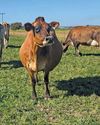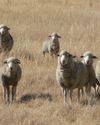कोशिश गोल्ड - मुक्त
Saving The Planet Depends On A New Agriculture
Farmer's Weekly
|October 02, 2020
Nature is essential for human existence, providing and sustaining the air, freshwater and soils on which we all depend. It also regulates the climate and provides pollination and pest control. According to the World Wide Fund for Nature’s (WWF) ‘Living Planet Report 2020’, while more food and energy than ever before are supplied, overexploitation of plants and animals is increasingly eroding nature’s ability to provide these in the future.
-

Global economic growth over the past half-century has changed our world unrecognisably, driving exponential improvements in health, knowledge and standards of living. Yet this has come at a huge cost to nature and the stability of Earth’s operating systems that sustain us. Since 1970, global GDP has increased four times, the extraction of living materials from nature has tripled and the world’s human population has doubled, along with an enormous trend towards urbanisation. People living in cities now account for 50% of the global population.
Trade has exploded; the value of exports rose 200-fold from 1970 to 2017, with the largest increases in developed countries. This boom has enabled higher-income countries to increase their consumption even though nature, within their own boundaries, is relatively well protected; much of the added consumption is from nature’s contributions imported from lower-income countries, and these contributions are sometimes surrendered for little economic growth.
THE COST OF GROWTH
The biodiversity cost of the world’s expanding population and economic output has been significant. Since the industrial revolution, human activities have increasingly destroyed and degraded forests, grasslands, wetlands and other important ecosystems, threatening human well-being. Seventy-five percent of Earth’s ice-free land surface has already been altered significantly, most of the oceans are polluted, and more than 85% of the area of wetlands has been lost. This destruction of ecosystems has led to one million species (500 000 animals and plants and 500 000 insects) being threatened with extinction.
यह कहानी Farmer's Weekly के October 02, 2020 संस्करण से ली गई है।
हजारों चुनिंदा प्रीमियम कहानियों और 10,000 से अधिक पत्रिकाओं और समाचार पत्रों तक पहुंचने के लिए मैगज़्टर गोल्ड की सदस्यता लें।
क्या आप पहले से ही ग्राहक हैं? साइन इन करें
Farmer's Weekly से और कहानियाँ
Farmer's Weekly
Farmers 'unilateral victims' of climate
Gyeongbuk Provincial Council member Choi Taerim has demanded immediate and substantial support for apple farmers in the South Korean province, urging immediate measures for apple farmers affected by heat damage be implemented, The Asia Business Daily recently reported.
1 min
November 21-28, 2025

Farmer's Weekly
Top agri workers celebrated in the Western Cape
Shannon Robertson, assistant livestock manager at Boschendal near Franschhoek, was crowned the overall winner of the 2025 Western Cape Prestige Agri Awards, held in Durbanville.
1 min
November 21-28, 2025

Farmer's Weekly
Smart dairying: running Jerseys on pasture
The dairy farming sector has seen innovation in milk parlour and cow comfort technology that have allowed farmers to not only yield higher volumes, but extend the productive lifespan of their cows. Albrecht de Jager told Henning Naudé about his approach to maintaining a pasture-raised Jersey herd while utilising precise data measuring technology to ensure quality milk output and optimal cow comfort.
6 mins
November 21-28, 2025

Farmer's Weekly
High-performance dairy farming in the Eastern Cape: the Rufus Dreyer approach
Dairy farming is often described as one of the most technically demanding and strategically complex branches of agriculture.
6 mins
November 21-28, 2025

Farmer's Weekly
Design your stables and camps to assist in AHS control
Keep horses away from areas where disease-carrying midges multiply, like natural pools, lakes, streams and dams, advises Dr Mac.
2 mins
November 21-28, 2025

Farmer's Weekly
The rolling chant that has echoed through SA over the past 30 years
Johan van der Nest is renowned in auction circles and was the first freelance stud-stock auctioneer to begin operating in South Africa.
10 mins
November 21-28, 2025

Farmer's Weekly
Flight from the Red Army
The fall of the Third Reich in 1945 was defined by the Red Army's brutal invasion of Germany. Mike Burgess tells how the Hoppe family trekked from Finowfurt near Berlin to Preetz in Schleswig-Holstein to escape the brutality.
6 mins
November 21-28, 2025

Farmer's Weekly
How to plan a pre-sale feeding programme
Proper feeding of animals before a sale can help producers catch the eye of buyers and increase profits, but it is important to choose the right ration.
8 mins
November 21-28, 2025

Farmer's Weekly
How women are transforming coffee production in Kenya
A group of Kenyan smallholder women farmers are transforming the country's high-value coffee sector by pooling their resources.
5 mins
November 21-28, 2025

Farmer's Weekly
Tough times ahead for SA's grain farmers
Grain farmers face a difficult year ahead with lower grain prices and high production costs
3 mins
November 21-28, 2025
Translate
Change font size

